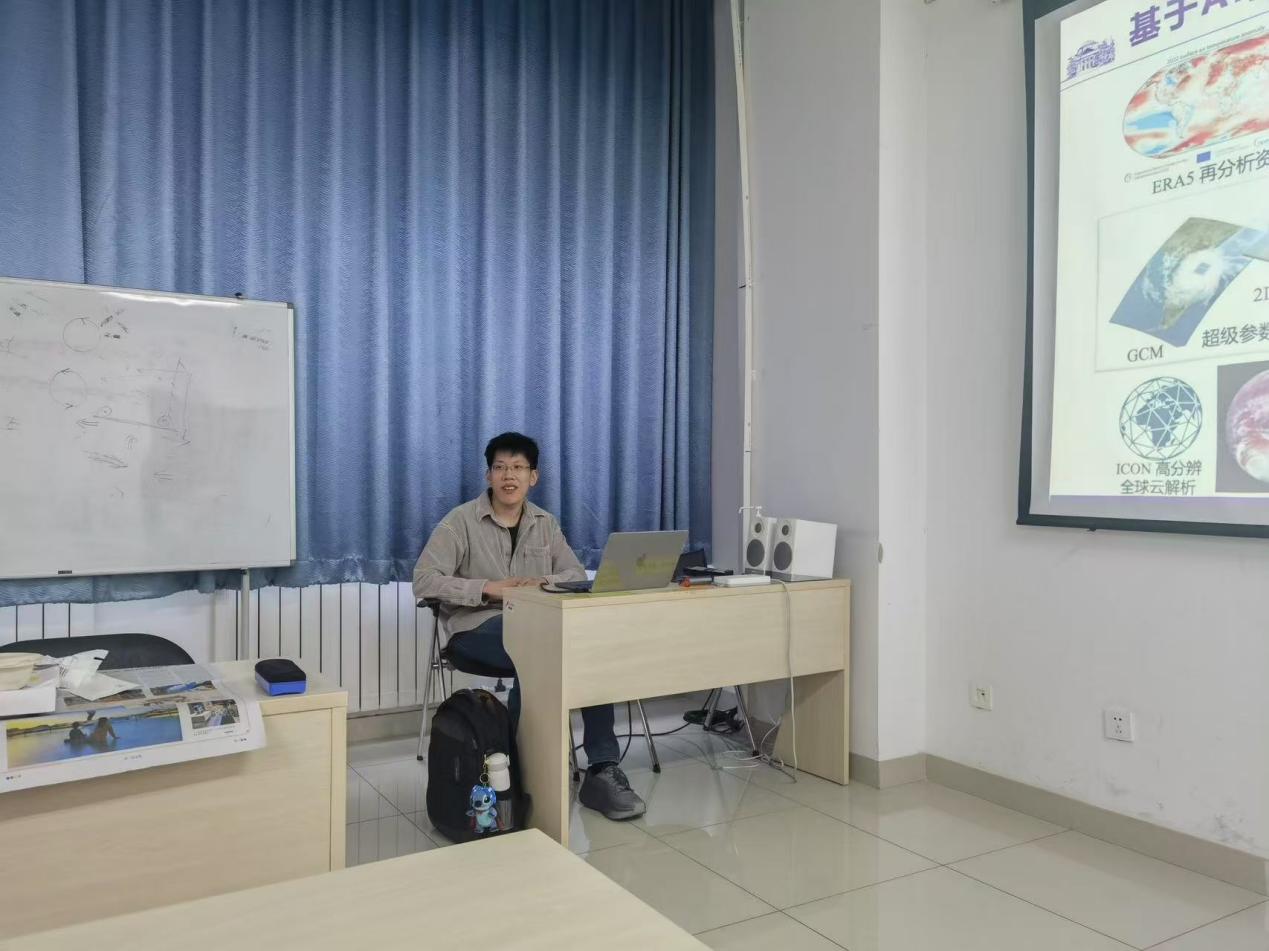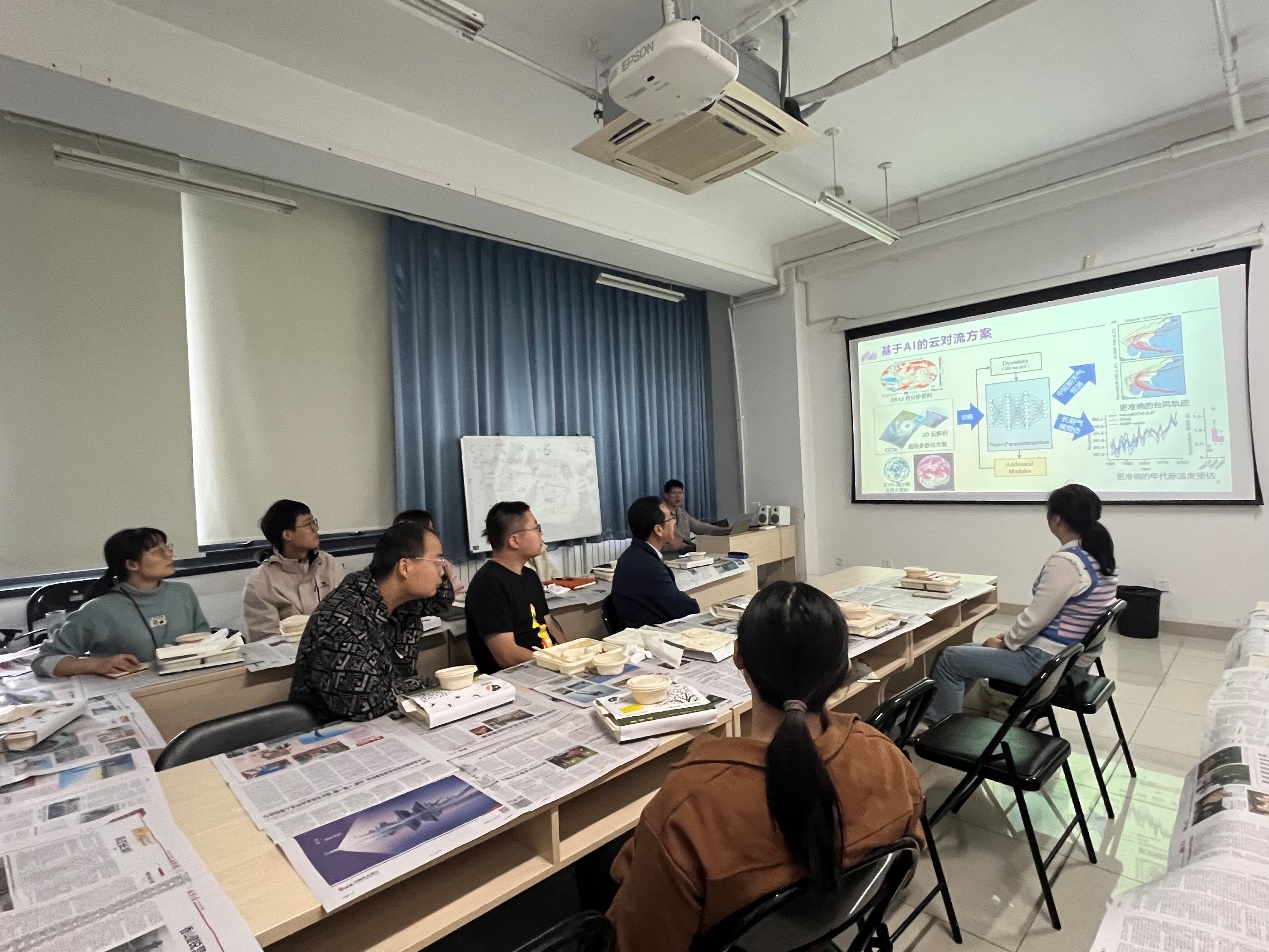At noon on October 17, the Department of Earth System Science (DESS), Tsinghua University held the second luncheon salon of this semester in S927, Mong Man Wai Technology Building. Han Yilun, a postdoctoral fellow in the DESS, was invited as the keynote speaker to share insights on the theme of “Research on Deep Learning-Based Parameterization Schemes for Cloud Convection and Lightning”.

Han Yilun shares his insights
Han Yilun presented an overview of the limitations associated with the prevailing traditional parameterization schemes employed in climate modeling. Furthermore, he delineated the background, contemporary research advancements, and inherent deficiencies of the deep learning-based cloud convection and lightning schemes. Han elucidated the simulation effect of the deep learning-based cloud convection scheme, particularly highlighting its convection memory capability and one-dimensional vertical convolution features, with an emphasis on the notable advantages of these structures in diverse climate states generation and climate model coupling. Following this, he delineated the lightning scheme that leverages two-dimensional convolution and integrates various thermodynamic and cloud microphysical variables. Han demonstrated its precision in capturing the "lightning chimney" region in Africa and briefly introduced the methodology and findings of the deep learning-driven physical analysis.

Luncheon scene
Participants discussed in depth the technical characteristics, application prospects and the physical relationship behind the deep learning- based cloud convection and lightning scheme.
Written by Han Yilun and Fu Meijuan
Photographed by Wang Jiayin and Xu Meng
Reviewed by Geng Rui